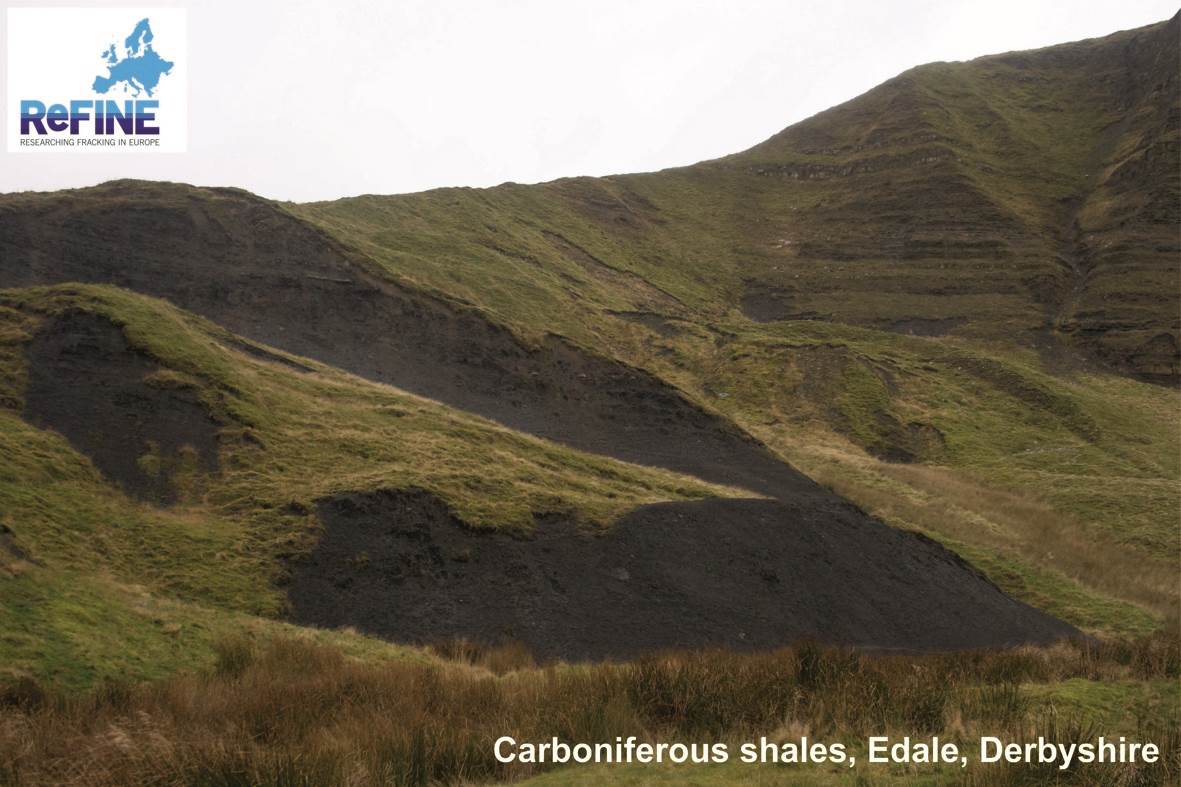 |
| Britain for shale? (Image from Wikimedia Commons, via DECC) |
If the contentions of the UK
government's energy policy are summed up in a single word, it's
probably this one: fracking. According to the August 2015 government survey of public opinions about energy, 28% of UK people are opposed to it, 21% of people support it, and 46% neither oppose nor support it (I'm not sure what the other 5% think!).
Originally a shorthand for the process
of hydraulically
fracturing low
permeability rocks – particularly shales
– to extract hydrocarbons from them, the term 'fracking' has evolved and
mutated. To some, it is a byword for energy independence and
prosperity. To others, it is a swear word
of greed and pollution. Fracking is now so variously (mis)used and
(mis)understood that it's often hard to know exactly what it
encompasses.
If fracking has issues of semantics,
then the subject has clearly not been communicated very well. This is
a consequence of many factors, but two are particularly pertinent: a
lack of fundamental research, and a reluctance of experts to speak
out about what is correct or incorrect, and what is known or unknown.
The latter is a consequence of the
former. Most people – geologists included – know little about
shales, or shale gas, or fracking; only recently have they become a
focus of much scientific attention. Even if you are an expert,
the need to try and bring sense into the debate is often
counter-balanced by the chastening experience of sticking your head
above the parapet. Nonetheless, we should try to provide information
whenever we can.
 |
| Carboniferous shales in the Peak District, UK (Photo by Liam Herringshaw / ReFINE) |
Despite all the recent hype
about Britain's onshore shale gas potential, for example, we actually
know very little about the deep geology of the country's shale
basins. Only multi-disciplinary investigations, gathering and
interpreting large datasets and then communicating the findings to
the public, can help address such uncertainties. But how should
research into fracking be funded? And what ethical issues are raised?
If you're implacably opposed to shale
gas extraction, you might argue that there should be no funding at
all. Since the combustion of fossil fuels is a key driver of climate
change, using new techniques to extract and burn them is wrong, and
shouldn't happen. That argument has been made to me at meetings I've
attended.
Most people, however, recognize the
need for peer-reviewed scientific research, even if they are opposed
to unconventional hydrocarbon extraction. Fracking is already
happening, and will continue to happen. Many impacts – positive and
negative – have been claimed on its behalf, but few have been
proven with empirical data. To properly inform the debate we need
more facts about fracks.
 |
| ReFINE - Researching Fracking In Europe |
To this end, the main project I have
been involved with over the last couple of years is ReFINE
(Researching Fracking In Europe).
Led by Newcastle and Durham universities, with contributions from
many other institutions (including GEES at Hull), ReFINE aims to investigate
the key topics of public concern and communicate the findings as
widely as possible.
As the consortium is part-funded by the
hydrocarbon industry, though, there were concerns that the public
would see ReFINE as potentially biased. A unique set of ethical
procedures were therefore put in place to ensure that funders did not
have direct influence over the research outputs. These are:
- Peer review – all ReFINE papers are submitted to recognized journals for peer review by scholars not involved in the project;
- Disclosures of interest – all members of the project are required to declare any current or past interests that may compromise their impartiality;
- Independent Science Board – comprising impartial scientific researchers from across the world, the Independent Science Board (ISB) directs and oversees all ReFINE research, ensuring it is accurate, relevant, and free from industry bias;
- Offsite archives – correspondence and data relating to the project are recorded using a secure email archive, and made publicly available on request.
No matter how transparent you attempt
to be, there will always be those who regard your work with
suspicion. Perhaps the best indication of independence is when pro-
and anti-fracking groups both perceive your findings as supporting
their opponents' position. Having been described as 'frackademics'
after publishing one peer-reviewed publication, and then 'nettle wine tasters'
after publishing another, members of ReFINE are certainly discovering
this.
Ethics are an increasingly important
consideration in research projects, particularly those investigating
contentious topics. I've not been involved in a project like ReFINE
before, with such a detailed ethics policy, but it is surely the
right approach. As researchers we need to demonstrate that we are
engaging properly with issues of trust and impartiality, especially
in relation to funding. As the most recent ReFINE publication has
also demonstrated,
we must discuss fracking with the public using non-technical
language. Only then will people begin to be able to make more
informed decisions about the real risks.
ReFINE will be a case study in a future issue of the journal Research Ethics, subject to final approval.
To find out more about the project, visit http://refine.org.uk/.




